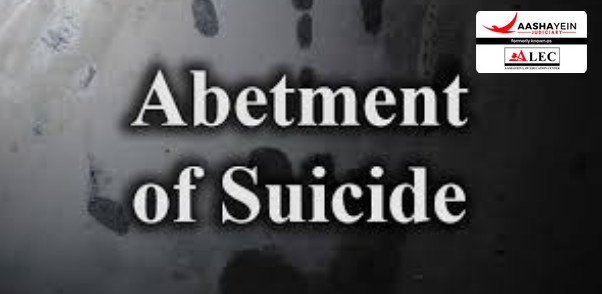The Supreme Court of India recently quashed charges of abetment of suicide under Section 306 of the Indian Penal Code (IPC)(Now Section 108 of Bharatiya Nyaya Sanhita,2023), emphasizing that for such charges to hold, the alleged harassment must be so severe that it leaves the victim with no alternative but to end their life. Additionally, it must be established that the accused had the intention to aid or abet the deceased in committing suicide.
Understanding Abetment of Suicide under Section 306 IPC
The offense of abetment of suicide, as defined under Section 306 of the Indian Penal Code (IPC), has been a subject of extensive judicial interpretation. The Supreme Court of India has consistently held that mere allegations of harassment are insufficient to constitute abetment; the harassment must be of such intensity that it leaves the victim with no option but to end their life.
Sections 306 and 107 IPC (Now Section 108 and 45 of BNS,2023)
Section 306 IPC states: "If any person commits suicide, whoever abets the commission of such suicide, shall be punished with imprisonment of either description for a term which may extend to ten years, and shall also be liable to fine."
The term "abetment" is defined under Section 107 IPC, which includes:
- Instigation to commit an offense;
- Engaging in a conspiracy to commit an offense;
- Intentionally aiding a person to commit an offense.
For a charge under Section 306 IPC to be sustained, it is imperative to establish that the accused had an active role in instigating or facilitating the suicide, coupled with a clear intention to provoke the deceased to take such an extreme step.
You can also read the latest judgment by visiting [Latest Judgment]
For more information, visit [Aashayein Enquiry Section]
Case Analysis
In a recent judgment AYYUB vs. STATE OF UTTAR PRADESH 2025 SC 174, the Supreme Court quashed charges under Section 306 IPC, reiterating that the alleged harassment should be of such a nature that it leaves the victim with no alternative but to end their life. The Court emphasized that the intention of the accused to aid or instigate the deceased to commit suicide is a prerequisite for attracting Section 306 IPC.
In another case, Mahendra Awase vs. The State of Madhya Pradesh 2025 SC 80 the Court observed that mere harassment or trivial disputes, without any element of incitement or intent to provoke suicide, do not constitute abetment. The Court highlighted that the act of instigation must be of such intensity that it pushes the deceased to commit suicide.
Judicial Interpretation
The judiciary has laid down specific parameters to determine what constitutes abetment of suicide:
- Direct or Indirect Act of Instigation: There must be evidence of either a direct or indirect act by the accused that incites the deceased to commit suicide. Mere casual remarks or passive behavior do not amount to instigation.
- Intention to Provoke Suicide: The accused must have the mens rea (guilty mind) to induce the deceased to commit suicide. This involves a deliberate act or omission by the accused, leading the deceased to believe that ending their life is the only viable option.
- Proximity of the Act to the Suicide: The alleged act of instigation must be closely linked in time and context to the suicide. A distant or unrelated act cannot be construed as abetment.
Conclusion
The offense of abetment of suicide under Section 306 IPC necessitates a thorough examination of the accused's conduct, intent, and the circumstances leading to the suicide. Mere allegations of harassment, devoid of any direct or indirect act of instigation or intent to provoke the deceased to commit suicide, are insufficient to sustain a charge under this section. The judiciary has consistently underlined the need for a clear nexus between the accused's actions and the suicide, ensuring that individuals are not unjustly prosecuted based on unfounded allegations.

